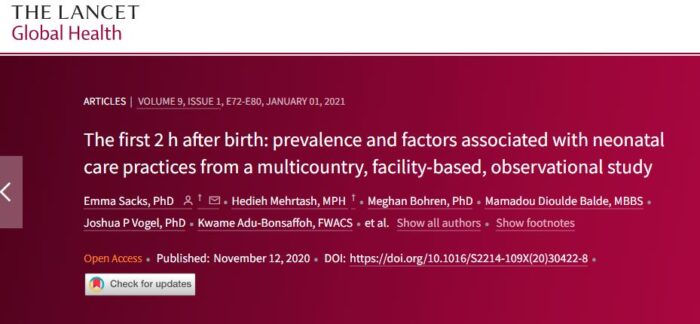
Amid efforts to improve the quality of care for women and neonates during childbirth, there is growing interest in the experience of care, including respectful care practices. However, there is little research on the prevalence of practices that might constitute mistreatment of neonates. This study aims to describe the care received by neonates up to 2 h after birth in a sample of three countries in west Africa.
This study describes the care received by neonates up to 2 hours after birth in Ghana, Guinea, and Nigeria. Data from this facility-based, observational study were collected on 15 neonatal care practices across 9 facilities, as part of WHO’s wider multi-country study on how women are treated during childbirth. Between 2016 to 2018, data was collected about neonatal care practices for 1,627 woman-neonate dyads.
Key findings
- 91.8% of neonates received delayed cord clamping
- At 64.4%, practices such as skin-to-skin contact were less commonly done
- 51.9% of mothers and neonates were separated during the first 2 hour after birth (more common for mothers who were single than those who were married or cohabiting)
- Lack of maternal education was associated with increased likelihood of neonates not receiving recommended breastfeeding practices
- Neonates with a low birthweight were more likely to not begin breastfeeding on demand than full weight neonates